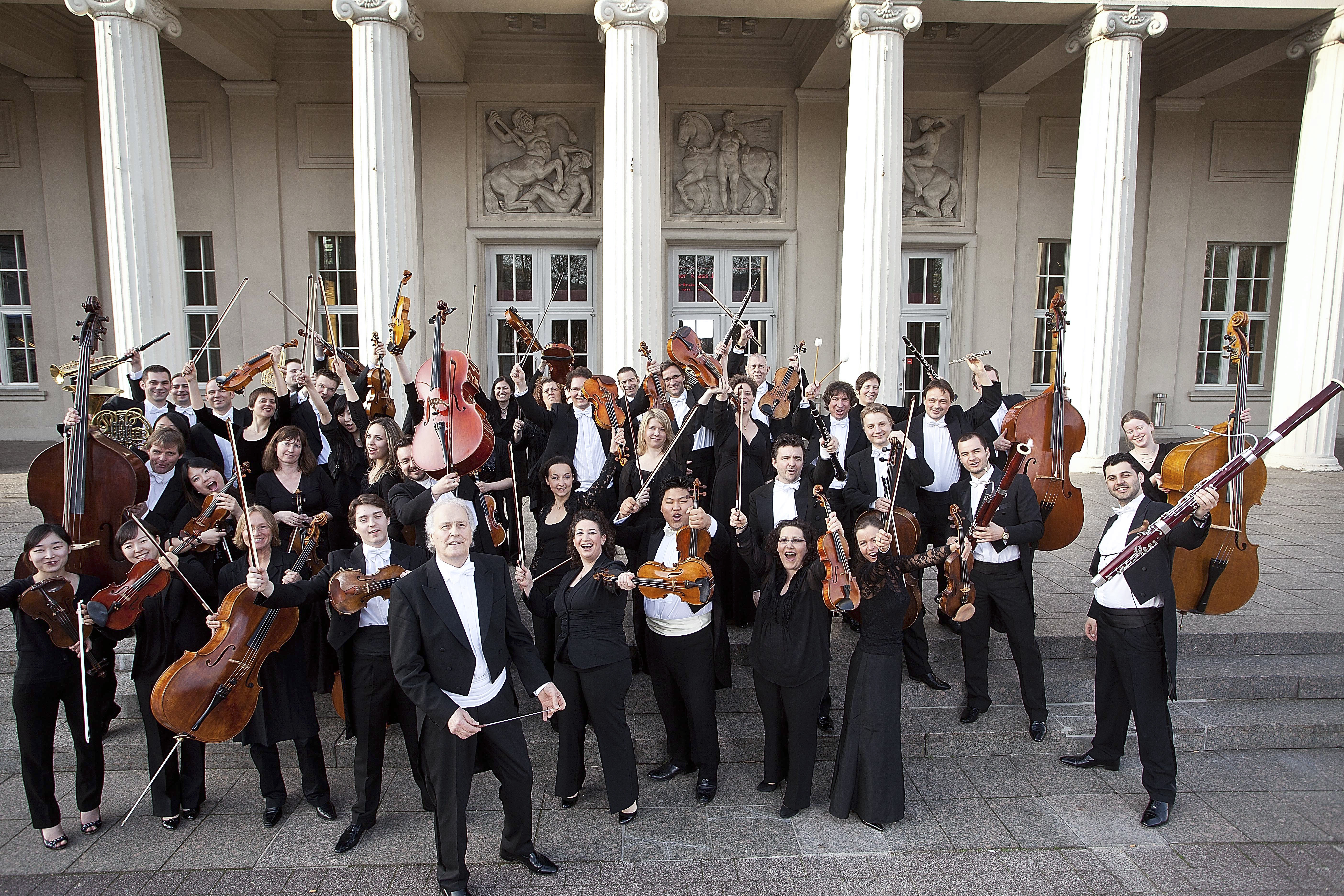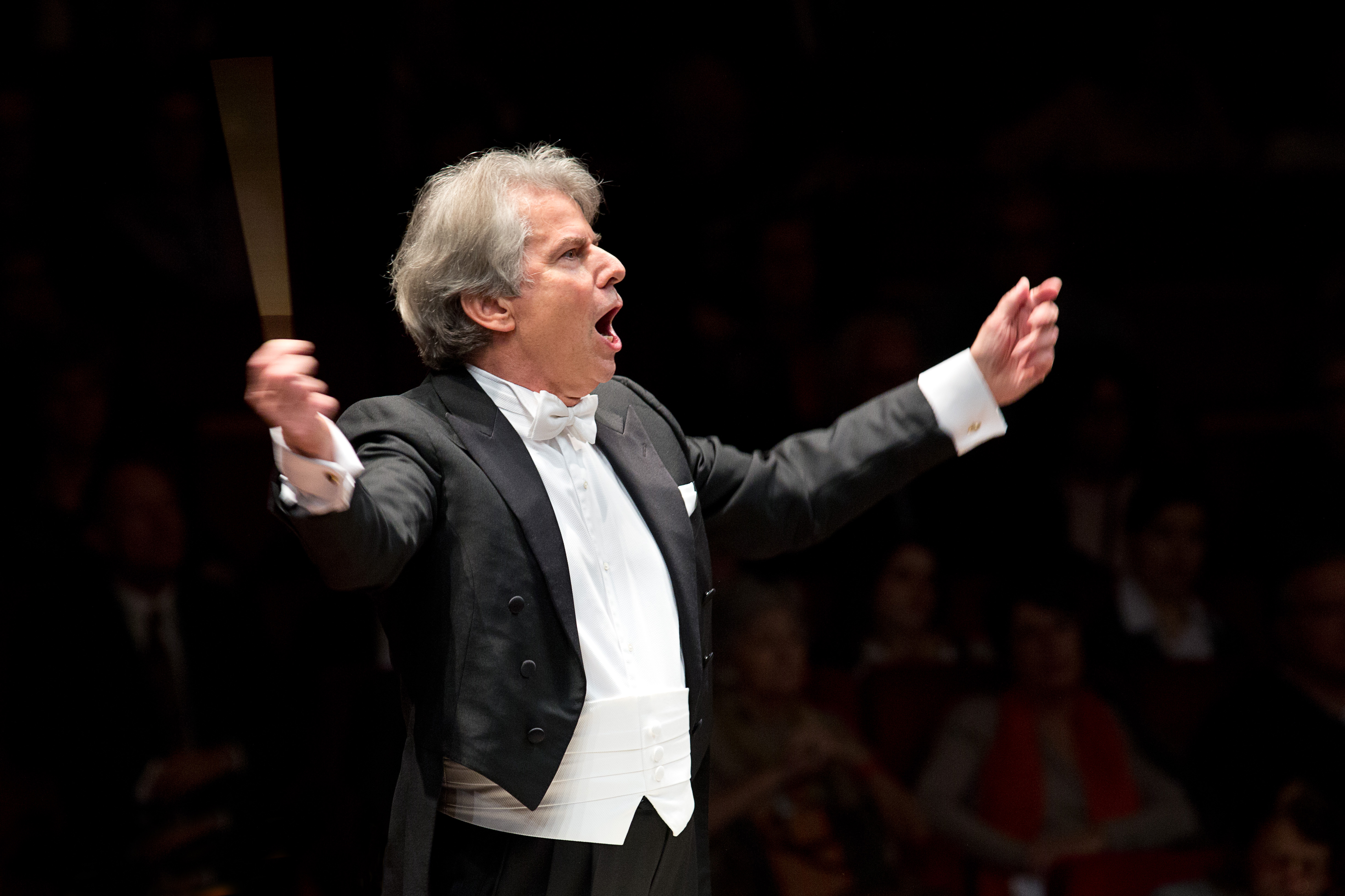|
Niklas Liepe
Niklas Liepe (born 2 March 1990) is a German classical violinist. Life Born in Göttingen, Liepe began his early studies at the age of twelve at the Institute for the Early Promotion of Musically highly gifted at the Hochschule für Musik, Theater und Medien Hannover (HMTM) and received lessons there from Krzysztof Węgrzyn. His studies took place at the Hochschule für Musik und Tanz Köln with Zakhar Bron and Mihaela Martin as well as at the Kronberg Academy with Ana Chumachenco and for chamber music with Oliver Wille at the HMTM Hannover. Liepe has successfully participated in numerous national and international competitions. He is a prizewinner of the Deutscher Musikwettbewerb, the European Broadcasting Union New Talent Competition, a two-time winner of the Henryk Wieniawski Violin Competition Poland, the International Kocian Violin Competition Czech Republic, cultural prize winner of the Norddeutscher Rundfunk, the Braunschweig Classix Competition, the International D ... [...More Info...] [...Related Items...] OR: [Wikipedia] [Google] [Baidu] |
Göttingen
Göttingen (, , ; nds, Chöttingen) is a college town, university city in Lower Saxony, central Germany, the Capital (political), capital of Göttingen (district), the eponymous district. The River Leine runs through it. At the end of 2019, the population was 118,911. General information The origins of Göttingen lay in a village called ''Gutingi, ''first mentioned in a document in 953 AD. The city was founded northwest of this village, between 1150 and 1200 AD, and adopted its name. In Middle Ages, medieval times the city was a member of the Hanseatic League and hence a wealthy town. Today, Göttingen is famous for its old university (''Georgia Augusta'', or University of Göttingen, "Georg-August-Universität"), which was founded in 1734 (first classes in 1737) and became the most visited university of Europe. In 1837, seven professors protested against the absolute sovereignty of the House of Hanover, kings of Kingdom of Hanover, Hanover; they lost their positions, but be ... [...More Info...] [...Related Items...] OR: [Wikipedia] [Google] [Baidu] |
Camerata Wrocław
Camerata Wrocław is a professional chamber orchestra in Wrocław, which was founded in 1998 by the Polish conductor and composer Jan Pogány. The orchestra performs regularly in Munich, Wrocław and Dresden Dresden (, ; Upper Saxon: ''Dräsdn''; wen, label=Upper Sorbian, Drježdźany) is the capital city of the German state of Saxony and its second most populous city, after Leipzig. It is the 12th most populous city of Germany, the fourth larg ... as well as on regular international tours. The Camerata Wrocław has a repertoire from Bach to film music. External links Official site {{DEFAULTSORT:Camerata Wroclaw String orchestras Chamber orchestras Polish orchestras Musical groups established in 1998 Culture in Wrocław ... [...More Info...] [...Related Items...] OR: [Wikipedia] [Google] [Baidu] |
Walkenrieder Kreuzgangkonzerte
The Walkenrieder Kreuzgangkonzerte have been the annual music festival of Walkenried Abbey in Lower Saxony Göttingen (district), Göttingen district since 1983. Since 2010, the Walkenried Abbey venue has been part of the World Heritage Site Upper Harz Water Regale.Upper Harz Water Regale is a World Heritage Site German Commission for UNESCO e. V. (August 2010) Preliminary work From 1980 onwards, extensive redevelopment and Conservation and restoration of cultural heritage, restoration measures began in Walkenried Abbey, whereby the cloister, which had been open until then, received its leaded windows. The installation of warm-air underfloor heating in the double cloister this area of the monastery could for the first time, all year round, be culturally used. These co ...[...More Info...] [...Related Items...] OR: [Wikipedia] [Google] [Baidu] |
Dresden Music Festival
The Dresden Music Festival (German: Dresdner Musikfestspiele) is an annual music festival which takes place in Dresden, Germany in May and June. Although classical music, including contemporary classical music, forms the core of its performances, world music, jazz, and dance are also presented. One of its hallmarks is that the choice of repertoire is built on a specific theme which changes each year. The festival was established by government decree in 1978 when Dresden was still part of the German Democratic Republic. The German cellist Jan Vogler has been its Artistic Director since 2009.Rosenberg, Donald (7 June 2009)"Dresden Music Festival embraces spirit of renewal for Germany and the world" ''Cleveland Plain Dealer''. Retrieved 7 January 2016. The performances are held at a variety of venues in the city, including many baroque buildings destroyed in the bombing of World War II and since rebuilt, including the Semperoper opera house, the Dresden Frauenkirche, and the summer pal ... [...More Info...] [...Related Items...] OR: [Wikipedia] [Google] [Baidu] |
Schwetzingen Festival
The Schwetzingen Festival (German: Schwetzinger Festspiele, now Schwetzinger SWR Festspiele) is an early summer festival of opera and other classical music presented each year from May to early June in Schwetzingen, Germany. In 1952, the broadcaster Süddeutscher Rundfunk founded the festival in the Schwetzingen area. It is located in a beautiful 250-year-old palace and park, Schwetzingen Castle, near the famous city of Heidelberg. The main venue is the historic Schlosstheater Schwetzingen. Nowadays, the successor organization is the Südwestrundfunk (SWR) and it organises many international concerts and music theatre events every year. List of major premieres and rediscoveries One of the festival's characteristics is the world premiere of a new opera, as well as at least one rediscovered opera from former centuries, performed on period instruments. Concerts Concerts have featured well-known artists such as Gidon Kremer, Jorge Bolet and Cecilia Bartoli, as well as young artis ... [...More Info...] [...Related Items...] OR: [Wikipedia] [Google] [Baidu] |
Heribert Beissel
Heribert Beissel (27 March 1933 – 11 June 2021) was a German conductor. While based in Bonn for decades, as conductor at the Bonn Opera and as founder and conductor of the Klassische Philharmonie Bonn, he also held leading positions in Halle (Saale) and Frankfurt (Oder) after the German reunification. His discography covers composers from Bach to Debussy. Life and career Born in Wesel, Beissel attended the Collegium Augustinianum Gaesdonck, a humanistic gymnasium. He studied piano and conducting at the Hochschule für Musik Köln, conducting with Günter Wand and composition with Frank Martin. He began his conducting career as a repetiteur and soon Kapellmeister at the Bonn Opera in 1955, where he remained until 1964. He founded the Chur Cölnisches Solistenensemble in 1958, dedicated to the music at the Bonn court of the Electors of Cologne. In 1968, he also founded the . Beissel was the chief conductor of the Hamburger Symphoniker from 1971 to 1985. During this peri ... [...More Info...] [...Related Items...] OR: [Wikipedia] [Google] [Baidu] |
Hartmut Haenchen
Hartmut Haenchen (born 21 March 1943) is a German conductor, known as a specialist for the music of Carl Philipp Emanuel Bach, and for conducting operas in the leading opera houses of the world. Career Born in Dresden, Haenchen began his musical career as a member of the Dresdner Kreuzchor. By the age of 15, he was already conducting performances as cantor. As a 17-year-old, he attracted widespread attention with his revival of Johann Adolph Hasse's Requiem. Haenchen subsequently studied conducting and voice at the Hochschule für Musik Carl Maria von Weber. He then attended master classes in Berlin, Leningrad and at Carinthian Summer Festival in Austria, later attending rehearsals at the Bayreuth Festival and concerts conducted by Herbert von Karajan. Haenchen's first engagement was as director of the Robert-Franz-Singakademie (choral society) in Halle and conductor of the Halle Philharmonic Orchestra in 1966. He went on to win first prize at the Carl Maria von Weber Competit ... [...More Info...] [...Related Items...] OR: [Wikipedia] [Google] [Baidu] |
Gregor Bühl
Gregor is a masculine given name. Notable people and fictional characters with the name include: People * Gregor Abel (born 1949), Scottish footballer * Gregor Adlercreutz (1898–1944), Swedish equestrian * Gregor Aichinger (c. 1565–1628), German composer * Gregor Amann (born 1962), German politician * Gregor Arbet (born 1983), Estonian basketball player * Gregor Bailar (born 1963), American businessman * Gregor Bajde (born 1994), Slovenian footballer * Gregor Balažic (born 1988), Slovenian footballer * Gregor Baumgartner (born 1979), Austrian ice hockey player * Gregor Becke (born 1972), Austrian canoer * Gregor Belkovsky (1865–1948), Zionist activist * Gregor Benko (born 1944), American music historian * Gregor Bermbach (born 1981), German bobsledder * Gregor Betz (born 1948), German swimmer * Gregor Bialowas (born 1959), Austrian weightlifter * Gregor Blanco (born 1983), Venezuelan baseball player * Gregor Blatnik (born 1972), Slovenian footballer * Gregor B ... [...More Info...] [...Related Items...] OR: [Wikipedia] [Google] [Baidu] |
John Holloway (musician)
John Holloway (born 19 July 1948) is a British baroque violinist and conductor, currently based in Dresden, Germany. He is a pioneer of the early music movement. Holloway was born in Neath, Wales, and studied in London at the Guildhall School of Music and Drama in London. After initial engagements, including at the Academy of St. Martin in the Fields and at the English Chamber Orchestra, he became manager and concertmaster of the Kent Opera Orchestra in the 1970s. After an encounter with Sigiswald Kuijken in 1972, he started playing the Baroque violin and gained a reputation as violinist, teacher and conductor in the field of historically informed performance. In 1970 he became the concertmaster of Sir Roger Norrington's London Classical Players, and later Andrew Parrott's Taverner Consort and Players. Besides playing in numerous Baroque orchestras, he is a noted musicologist and lecturer. Holloway has taught at the Guildhall School of Music and Drama in London, the Schola ... [...More Info...] [...Related Items...] OR: [Wikipedia] [Google] [Baidu] |
Christoph Eschenbach
Christoph Eschenbach (; born 20 February 1940) is a German pianist and conductor. Early life Eschenbach was born in Breslau, Germany (now Wrocław, Poland). His parents were Margarethe (née Jaross) and Heribert Ringmann. He was orphaned during World War II. His mother died giving birth to him; his father, a politically active anti-Nazi, was sent to the Eastern front as part of a Nazi punishment battalion where he was killed.Christoph Eschenbach in "A Wayfarer's Journey: Listening to Mahler." Ruth Yorkin Drazen, PBS, 2007. As a result of this trauma, Eschenbach did not speak for a year, until he was asked if he wanted to play music. Wallydore Eschenbach (née Jaross), his mother's cousin, adopted him in 1946 and began to teach him to play the piano. At age 11, he attended a concert conducted by Wilhelm Furtwängler which had a great impact on him. In 1955, Eschenbach enrolled at the Musikhochschule in Cologne, studying piano with Hans-Otto Schmidt-Neuhaus and conducting with ... [...More Info...] [...Related Items...] OR: [Wikipedia] [Google] [Baidu] |
Brandenburgisches Staatsorchester Frankfurt (Oder)
The Brandenburgisches Staatsorchester Frankfurt or ''BSOF'' is a symphony orchestra based in Frankfurt (Oder) in Germany. It is the orchestra of the state of Brandenburg. From 2007 to 2019 its leader has been Howard Griffiths. Since 2019 the orchestra is under the leadership of Jörg-Peter Weigle. History It was founded in 1842 and gave its first public appearance on 1 November that year at the opening of the Frankfurter Stadttheater (designed by Karl Friedrich Schinkel and built by Emil Flaminius at 22 Wilhelmsplatz), performing Albert Lortzing's Zar und Zimmermann. In 1871 the Philharmonischer Verein was founded, organizing three concerts a year as well as choral concerts at the Singakademie, before dissolving itself in 1895. The theatre was destroyed during the Second World War and its ensemble and the orchestra both moved to the Musiklandheim, built in 1928-1929 by Otto Bartning - in 1952 it was renamed the Kleist-Theater. Some of the theatre's musicians founded the sepa ... [...More Info...] [...Related Items...] OR: [Wikipedia] [Google] [Baidu] |




